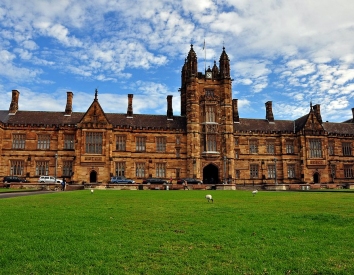The Federal Government unfairly expects research students to survive on a stipend which is typically less than the minimum wage, writes Dr Daniel Gregory.
IN ORDER to attain a PhD or other postgraduate research degree, students must carry out original academic research which makes some contribution to progress in their field. To even begin such a degree, students must have achieved at a higher level than most of their peers as undergraduates.
Yet the Federal Government scholarships which are available to support these students – Research Training Program (RTP) scholarships – provide a stipend which is typically less than the minimum wage. How could this be so?
How the system works
The Government provides "block grants" to individual universities to fund these scholarships. The universities select the candidates who will receive the scholarships and they have some limited discretion regarding their administration.
A scholarship generally covers fees for a student’s degree program, some allowances for expenses such as relocation and printing the thesis which a student ultimately produces — plus a stipend. Students can enrol without such a scholarship if they have sufficient funds of their own, or if they can find alternative support, or if they can balance their study with paid work. In practice, it is a very small number of people to whom any of these options is really available, especially if one wants to carry out the degree full-time.
The Government determines a base rate for the RTP stipend, which in 2021 is $28,597. This is the value of the stipend at almost all universities. As the stipend is paid as part of a scholarship, no tax is payable but there is also no entitlement to superannuation.
In contrast, the minimum wage in Australia currently stands at $753.80 per week for a 38-hour week. After tax, that is a little under $35,000 per year and superannuation must also be paid. (Whether the minimum wage is adequate is another question.)
The stipend is higher at a small number of universities — above $30,000 at a handful. At the University of Sydney, the amount is a comparatively luxurious $35,629, though even that is well under minimum wage, once the superannuation payable on the minimum wage is taken into account.
Things can get much worse towards the end of a student’s candidature. Universities must pay the stipend to full-time PhD students for a minimum of three years, but not necessarily for the four years which is often the term of the degree.
Unreasonable expectations
Is it not a reasonable expectation that research students should receive a stipend at least equivalent to the minimum wage for the duration of their programs?
The standard of work required is as high as it can be for someone who has recently completed undergraduate study. Moreover, students who commence a PhD or a research masters degree would certainly be able to secure relatively gainful employment in other sectors, if they chose that path instead.
These students are also essential members of research teams. Research students must do independent research but their work often fits into larger projects being carried out in a coordinated fashion by groups of scholars or scientists at different levels of seniority. The work done by research students in such a group, just like the work done by the other team members, is important to the success of the project overall.
Of course, research students do receive a very high qualification upon successful completion of their degree. Is this not reward enough?
In itself, a qualification is not a thing of value. A qualification is an indicator of a certain level of expertise or experience, but it is the expertise or experience which is valuable. These are the things which make one, for example, suitable for a job with particular responsibilities.
What is distinctive of qualification is only that it is evidence of expertise or experience gained in a certain way — typically in an academic context or a context involving formal training. But there are other ways to gain expertise and experience and other forms of evidence that one has gained them.
Someone who begins work in a professional context will, in their first few years, gain expertise and experience and the evidence of their doing so will be their demonstrable achievements and promotions and the testimony of their superiors in references.
Yet those working in a professional context – including those in the employ of the Federal Government – are properly remunerated. (Or, at least, none is paid less than the minimum wage.) The fact that research students gain expertise and experience in an academic context, and that the evidence of this expertise and experience takes the form of an academic qualification, is no reason that they should not be properly remunerated.
The Athenian philosopher, Diogenes, rejected material comforts. He believed in simplicity and frugality. He supported himself by begging and he lived in a barrel.
Research students also tend to have little interest in luxury: no one goes into research for the money. Unlike Diogenes, though, they would surely accept a living wage.
Dr Daniel Gregory completed a PhD in philosophy at the Australian National University. He is now a Humboldt Postdoctoral Fellow at the Eberhard Karls University of Tübingen in Germany.
 This work is licensed under a Creative Commons Attribution-NonCommercial-NoDerivs 3.0 Australia License
This work is licensed under a Creative Commons Attribution-NonCommercial-NoDerivs 3.0 Australia License
Support independent journalism Subscribe to IA.














